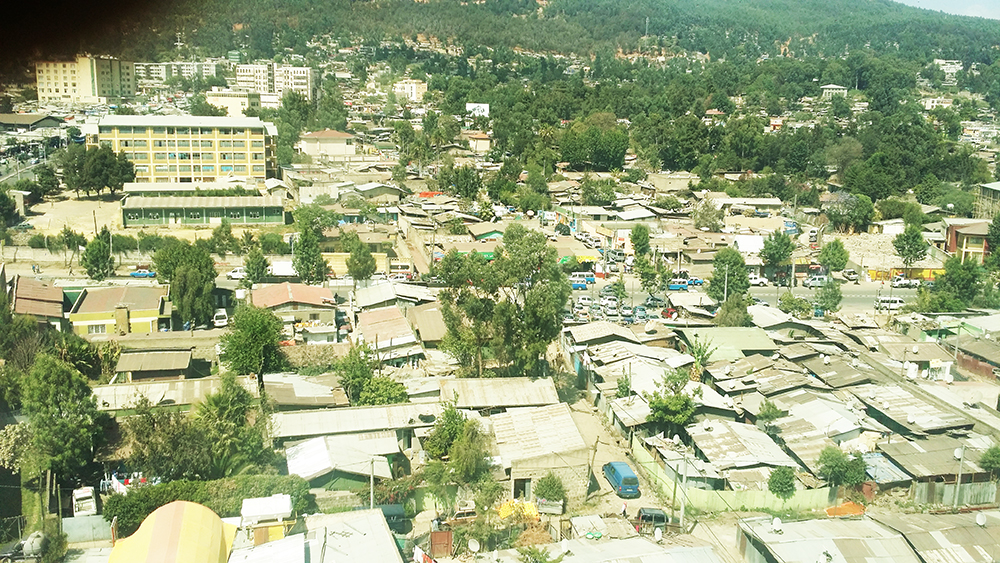We are recognised as authorities in our specialised fields. We publish newsletters with informed opinions that are free for you to subscribe to.
Ice cold in Addis
Recently I spent some time in Addis Ababa – I was on an IMF Mission working with the Ethiopian Customs and Revenue Authority. Addis is a city at 2,300 metres (so you notice when you climb stairs) and the climate is very temperate (I found it slightly cooler than Auckland and far less humid). Ethiopia markets itself as the cradle of humanity, one of the earliest Christian countries. It gave sanctuary to early Muslims – I suspect this is why the people are friendly, dignified and comfortable with their history.

Ethiopia is relatively politically stable. It didn’t really suffer a colonial period, the Italians were only around five years, just long enough to build a few jails before being defeated in 1941 with the help of the British. This means it is seen as a cornerstone nation in Africa. It has a long connection with the UK, and although this was strained during its communist period, intervention by that well known expert on nutrition and development politics, Sir Bob Geldof seems to have rebuilt some of the goodwill. The level of development investment is very noticeable – as with many parts of the world, the quiet battle for influence bubbles along, with a strong Chinese presence as they build the new light rail and airport extension.
Addis has a population of about 3.5 million and the place is going off. It has all the tell-tale signs of a city that has grown rapidly over the last few years – growth is bubbling along in the 6-12 % range, as demonstrated by a combination of half-finished buildings (there is a tax benefit to never finishing construction) and pollution. I imagine Britain would have looked much the same during the years of middle class growth when the notorious pea-soup was common in London.
One of the things that stands out when I’m working in Asia or Africa is the age of the population. In the West we are getting really old and we know why – it is an effect long in the making, the result of rampant procreation following the second world war. This bubble of people is almost unprecedented in history, causing a massive distortion economically and socially – a lack of diversity of thought unleashes tyranny of democracy, where a majority of people can form a mob with terrible results, such as the dominance of National Socialism in Germany in the late 20’s (a generation of young men had been wiped out in the Great War).
 Demographic bubbles lead to asset bubbles. One of the most extreme contemporary examples is Japan, where the boomer effect coupled with a strong culture of Xenophobia (the history of Japanese isolationism is fascinating – there is very little immigration) and longevity offers a leading indicator of the effects of an ageing population on our economy. Recently the retirement age debate has opened up (a red herring that I won’t litigate here) but the real impact arises in other ways.
Demographic bubbles lead to asset bubbles. One of the most extreme contemporary examples is Japan, where the boomer effect coupled with a strong culture of Xenophobia (the history of Japanese isolationism is fascinating – there is very little immigration) and longevity offers a leading indicator of the effects of an ageing population on our economy. Recently the retirement age debate has opened up (a red herring that I won’t litigate here) but the real impact arises in other ways.
For clues as to our immediate future we can look at Japan. Older people tend to save more, spend less and focus on real assets. When a lot of people want to buy the same thing, the price goes up, but its underlying value does not. Gold is a great example – it is a virtually useless metal with little inherent value. Its price is based purely on what people believe it is worth. And not to put too fine a point on it, when two billion people like something, the price will rise.
Over the next fifty years Ethiopia will create a far larger middle class, just as is happening in Asia. In developed countries like ours we are working on shrinking the middle – this is the first generation since the second world war where home ownership will decline, a foundation of our society since the 1930’s. Without immigration, our economy will shrink. Older people tend to buy fewer things, but they do consume services, especially health.
The biggest lesson I draw from working in developing countries is that we are all fundamentally the same. We want to be safe and provide a future for our children. We must remember these basic factors of humanity are common to us all, and beware sociopaths preying on imaginary fears of difference. We will not thrive if we fall into the trap of blaming others – unity and social cohesion is the key, not driving wedges between parts of our society, whether it be the old and the young or first and second generation Kiwis.
And above all else we need to remember how lucky we are to live in this peaceful and safe place, and make sure we share it fairly.
If you don’t know where to begin, want to talk through something, or have a specific question but are not sure who to address it to, fill in the form, and we’ll get back to you within two working days.
Find out about our team
Look through our articles
Read more about our history
Business Advisory Services
Tax Specialist Services
Value Added Services
Get in touch with our team
Want to ask a question?
What are your opening hours?
AML & CFT Act in New Zealand
Events with Gilligan Sheppard
Accounting software options
Where are you located?
Events

